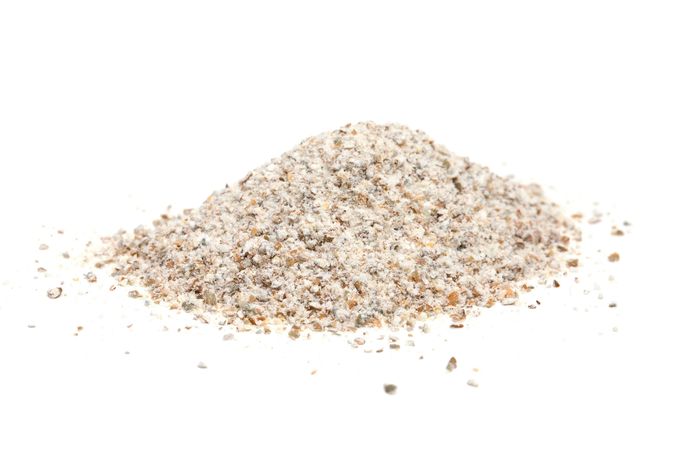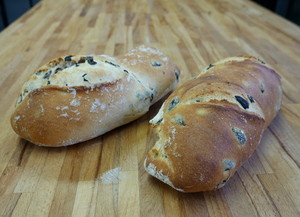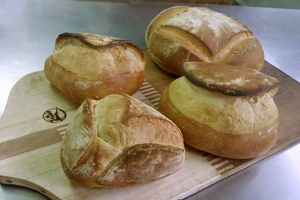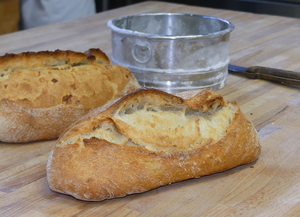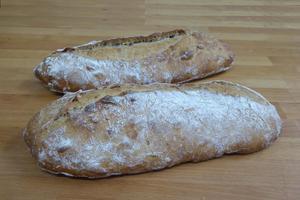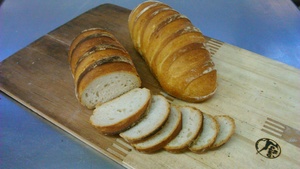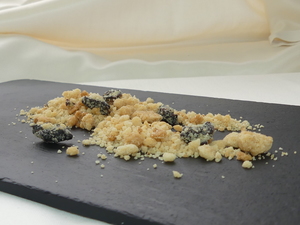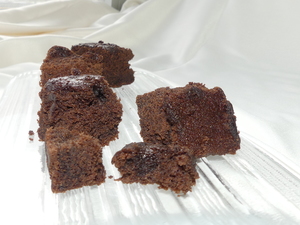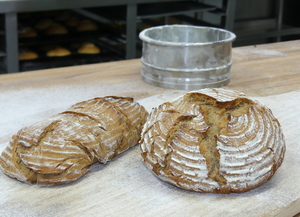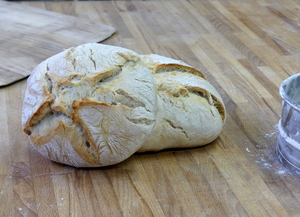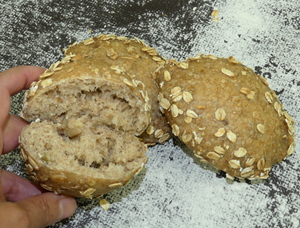Rye flour
Rye flour is the flour obtained when the rye grain is grinded.
This flour gives to bread a characteristic bitter flavour. It is also used to elaborate broths, meatballs and other culinary preparations.
It is characterised by having a special type of starch: the pentosans. The pentosans are a type of polysaccharide that provide a lot of viscosity to doughs. This is because it contains properties that are partly soluble in water, and partly insoluble. It creates a “gel” in the flour and water dough.
This properties in the flour give to rye bread some special properties. In effect, the rye bread lasts longer (it retains more dampness), the texture of the center is different to the one of other breads, and depending on the time of fermentation, it can obtain bigger volumes than wheat bread.
Rye flour contains less gluten than wheat flour.
-
Type of dish
- Beers
- Cocktails
- Breakfasts and brunch
- Burguers
- Juices, milkshakes and beverages
- Shellfish
- Bread and pastries
- Pizzas, patty
- Dessert
- Pasta
- Sándwich
- Pastries
- Finger foods
- Ice creams and sorbets
- Legumes
- Salads
- Eggs
- Patty
- liqueur
- Harvard plate
- Main course
- Meats
- Fish
- Birds
- Vegetables
- Soups and creams
- Rices
- Coffee, chocolate and infusion
- Cheeses
- Appetizers and canapes
- Temperature
- Cuisine type
- Additional culinary preparation
- Conservation technique
- Seasonal recipes
-
- Aromatic herbs
- Beverages
- Big game hunt
- Bread and pastries
- Canned goods and pickles
- Cereals
- Condiments, spices and additives
- Cooked, salted, preserved and cold meats
- Dried fruits and nuts
- Dry pulses
- Edible oils and vinegars
- Eggs and derivatives
- Feathered game hunt
- Fish cuts
- Fishes
- Insects
- Kitchen and bakery tecniques
- Kitchen and bakery utensils
- Meat cuts
- Meats
- Milk, cream and derivatives
- Mushrooms
- Offal
- Pasta, rice, flour and derivatives
- Poultry
- Seafood
- Service techniques
- Service utensils
- Vegetables cuts
- Vegetables, fruits, tubers and seaweed

